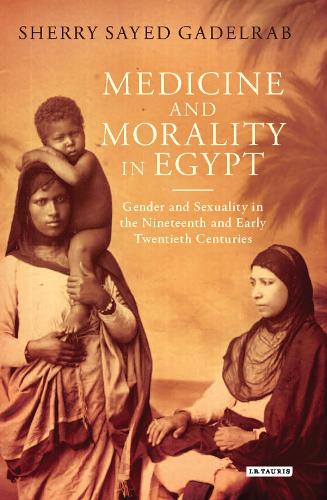
Medicine and Morality in Egypt: Gender and Sexuality in the Nineteenth and Early Twentieth Centuries
Publishing Details
Medicine and Morality in Egypt: Gender and Sexuality in the Nineteenth and Early Twentieth Centuries
By (Author) Sherry Sayed Gadelrab
Bloomsbury Publishing PLC
I.B. Tauris
25th August 2015
United Kingdom
Classifications
General
Non Fiction
History of medicine
Gender studies, gender groups
Sociology
Sex and sexuality, social aspects
306.70962
Physical Properties
216
Width 138mm, Height 216mm
424g
Description
In Middle Eastern and Islamic societies, the politics of sexual knowledge is a delicate and often controversial subject. Sherry Sayed Gadelrab focuses on nineteenth and early-twentieth century Egypt, claiming that during this period there was a perceptible shift in the medical discourse surrounding conceptualisations of sex differences and the construction of sexuality. Medical authorities began to promote theories that suggested men's innate 'active' sexuality as opposed to women's more 'passive' characteristics, interpreting the differences in female and male bodies to correspond to this hierarchy. Through examining the interconnection of medical, legal, religious and moral discourses on sexual behaviour, Gadelrab highlights the association between sex, sexuality and the creation and recreation of the concept of gender at this crucial moment in the development of Egyptian society. By analysing the debates at the time surrounding science, medicine, morality, modernity and sexuality, she paints a nuanced picture of the Egyptian understanding and manipulation of the concepts of sex and gender.
Author Bio
Sherry Sayed Gadelrab holds a PhD in Middle East Studies from the University of Exeter. She is currently teaching at the Institute of Arab and Islamic Studies, University of Exeter.
